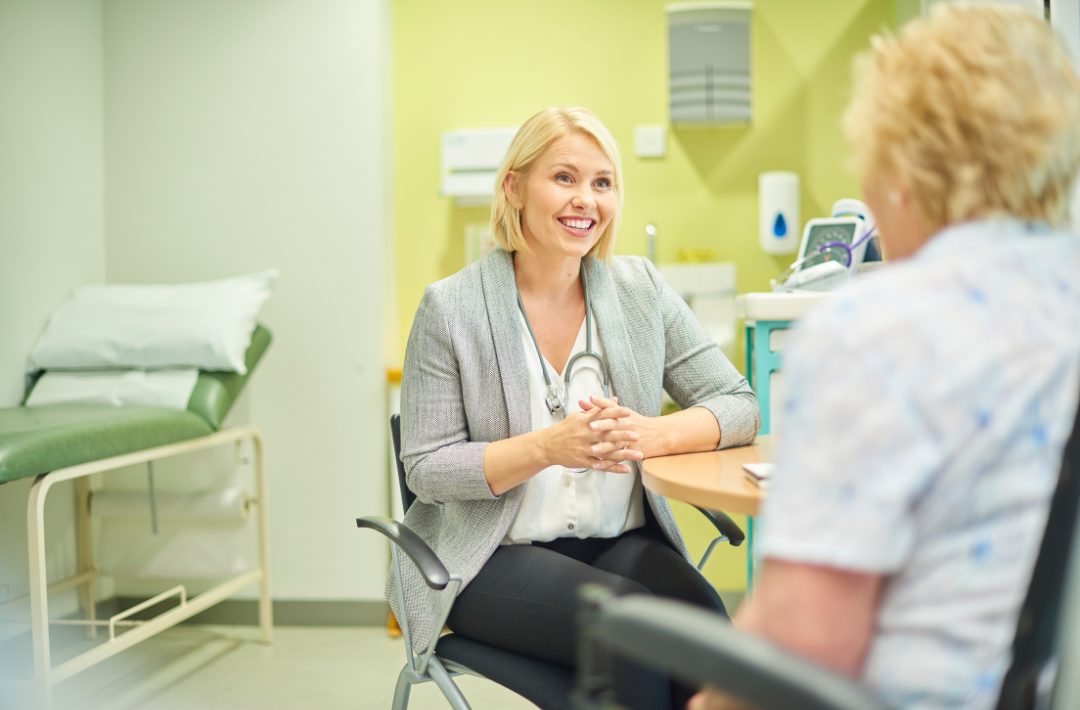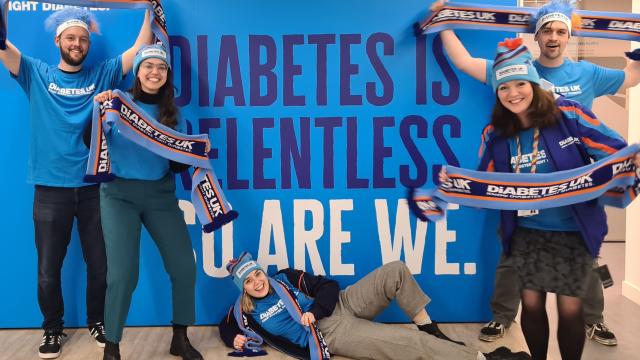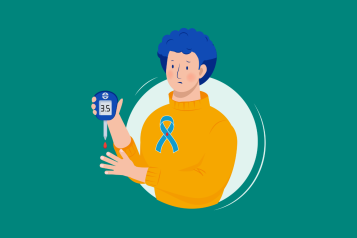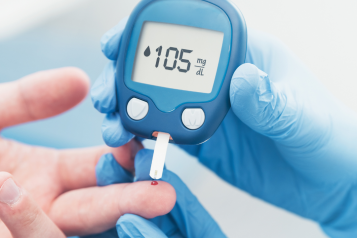Diabetes Information and Support


What is diabetes?
Diabetes is a chronic condition where the body struggles to produce or use insulin effectively. Insulin helps to convert sugar from food into energy. Without proper insulin function, blood sugar levels rise. This increases the risk of heart disease, stroke, kidney issues, vision loss and nerve damage.
The difference between Type 1 and Type 2
There are two main types: Type 1, where the immune system attacks insulin-producing cells, and Type 2, where the body becomes resistant to insulin.
Fewer than 1 in 10 people with diabetes in the UK have Type 1.
Type 1 is often diagnosed in childhood or adolescence but can occur at any age.
Type 2 is more common in adults but can develop at any age. Some things increase your risk of developing Type 2, such as being aged over 40. Your ethnicity, family history and lifestyle also play a role.
Visit the Diabetes UK website to find out more about what puts you at risk of developing diabetes and the differences between type 1 and type 2 diabetes.
Diabetes signs and symptoms
The most common symptoms are increased thirst, going for a wee a lot, feeling tired and losing weight. These symptoms can affect anyone - adult or child.
Other symptoms include
- Genital itching or thrush.
- Cuts and wounds take longer to heal.
- Blurred eyesight.
- Increased hunger.
Children and young people can become seriously unwell with diabetes, particularly if it has not yet been diagnosed The symptoms may be subtle at first, but if any of the following are persistent, medical advice should be sought: bed-wetting in a previously trained child, unusual tiredness or listlessness, irritability, lack of strength, energy, or concentration.

What are the most common symptoms of diabetes?
You may experience other diabetes symptoms and the symptoms you have may not exactly match that of another person and may not be on the list above. However, the most common symptoms experienced by many people with diabetes are increased thirst, going for a wee a lot, feeling tired and losing weight.
When to contact your GP
If you have any diabetes symptoms, it’s important to contact your GP and ask for a blood test for diabetes.
If you feel very unwell or your symptoms of diabetes have come on quickly, seek an urgent appointment with your GP or call NHS 111.
Managing your diabetes
Whether you have Type 1 or 2 diabetes, your annual diabetes health review will help you stay healthy. It is an important part of managing your diabetes.
It’s really important that you attend your annual health review when you are invited to do so by your GP.
Your health care team will monitor how diabetes is affecting your body and how you are responding to treatment. These checks can detect complications early before they become serious.
You will be offered a number of checks at your annual review.
A blood test that monitors your:
- Average blood sugar levels for the past three months.
- Cholesterol levels.
- How well your kidneys are working.
You will also be offered a foot check, a blood pressure check and BMI measurements.
A urine sample will be taken and checked for signs of kidney disease.
More information about how to manage your diabetes and what to expect at your annual health check is available on the Diabetes UK website.

Local diabetes support and information
The support you will need to manage your diabetes will depend on what type you have. Type 1 diabetes can’t be prevented and is treated through insulin. Type 2 diabetes can be prevented and managed by eating more healthily and being more active, as well as medication and weight loss surgery.
Find out more about local diabetes support groups and training below.
Diabetes UK Medway Support Group
This support group can help you if you have or know someone with diabetes and would like to know about how to look after yourself, research and new treatments.
Meetings are held quarterly at St Paul's Church, Parkwood, Rainham, Kent, ME8 9PN. For more details or to find out when our next meeting is, phone 01634 319 634, 07767 764 440, 01634 387 339, 01634 789 568 or 01634 251 931
Living Well Taking Control
This is a free, 9-month programme to reduce your risk of developing Type 2 Diabetes through group sessions or self-led through an app. Your GP can refer you or you can self-refer with an up-to-date blood sugar reading.
Visit https://www.lwtcsupport.co.uk/kent-medway-info
Spirit Hub Diabetes Education
Free access to the MyDiabetes app for people with Type 1 and Type 2 diabetes, plus support for your mental health.
Visit www.diabetes-education-km.co.uk
A Better Medway Diabetes Masterclass
Free half day, face-to-face workshops that focus on the causes and prevention of Type 2 Diabetes.
Visit https://healthtraining.medway.gov.uk/ and search for Diabetes Masterclass

Local health and wellbeing services
A Better Medway
The A Better Medway website has information about lots of services and groups that can help you to enjoy a healthier lifestyle including: health walks, cycle schemes, weight loss programmes and help to stop smoking.
Visit the A Better Medway website.
Everyday Active
Discover free or low-cost physical activities, with the ability to search within your local area.
Visit the Everyday Active Medway website.
Local support for a healthy lifestyle
Health Walks are delivered by Medway Council Public Health team, the list of available walks can be found here.
Everyday Active Medway hosts many free or low-cost physical activities, with the ability to search within your local area.
Stop Smoking Service is provided by Medway Council Public Health team. Offering one-to-one support, nicotine replacement therapy, smoking cessation medication (as of 01/04/2025), a vape starter kit. Face to face appointments are available in Chatham, Gillingham and Strood.
Healthy Way course offers tips around eating healthier and moving more as well as, at week 5 offering a specific diabetes prevention session. A breakdown of the weekly activities can be found here.
A Better Medway links to a number of services we provide including Adult weight loss, NHS health checks, Substance misuse support and Active Medway Cycling Projects.
“During my first year at medical school, I started to lose weight. In fact, I lost a lot of weight, dropping from about 100 kilos to 70… it got to the point where I couldn’t go an hour without needing the toilet and I was drinking around six or seven litres of water a day - the thirst really was unbelievable.”



